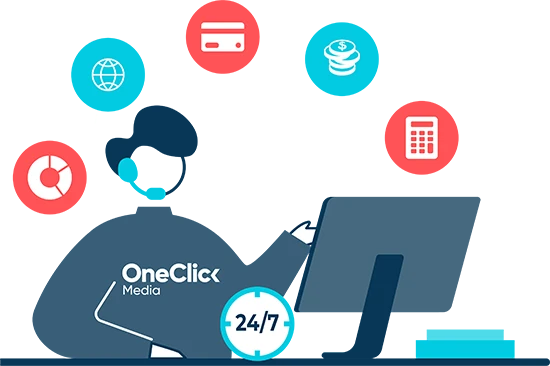
The Nature of E-Commerce Websites
In the context of e-commerce web development, search engine optimisation is particularly important as e-commerce websites rely heavily on search engine traffic to drive sales. However, SEO for e-commerce websites is more complex than for other types of websites for a few reasons:
- Large Product Inventories: E-commerce websites often have a large number of product pages, which can make it difficult to optimise each page individually for search engines.
- Dynamic Content: E-commerce websites frequently update their content, adding and removing products, and changing prices and promotions. This dynamic content can create challenges for SEO, as search engines need time to crawl and index new content.
- Duplicate Content: E-commerce websites often have a significant amount of duplicate content, such as product descriptions and specifications that are shared across multiple pages. Search engines may penalise sites with a high amount of duplicate content.

Add-Ons to “Out of the Box” Features
Custom e-commerce websites are tailored to your business’ preferences and needs, which means a lot of extra features to your website – add ons that a regular SEO specialist either may not know how to navigate or use to its best capacity.
For example, one of the very first actions an SEO specialist may take with your website is to ensure that all of your images have metadata that contains your keyword. Most SEO specialists have enough background in WordPress development to easily add metadata and alt-data to your website images and pages. However, for some platforms including Magneto, the ability to edit image metadata and alt-text isn’t a built-in feature – you would have to make sure it’s added to your ecommerce website by your developer.

Usability is an Add-On
Another feature that is easily overlooked is having an intuitive, user friendly website back-end that will allow you or your SEO specialist to make changes without contacting the developer. If you’re wanting to optimise your website for search engines, and regularly perform updates or tweaks to the content, your developer will have to make the ability to perform the tasks you want to undertake user-friendly.
For example, if you want to update the written content on your custom-build e-commerce website, such as adding additional information or edits, your developer may need to add additional functionality so you (or your SEO specialist) can make those changes.
Technical SEO Example: Product Filtering
One of the best examples of the reason why you may need to work with your developer for your e-commerce site’s SEO is through optimising your product filters. Each time a new search is created, it generates a new ‘dynamic’ URL. These new URLs are often automatically added to your site map, which is the list of website pages search engines use to know what urls to crawl. Having a product filtering system can add hundreds of pages to your sitemap, even if those searches do not generate any results.
There are a few reasons why this could cause harm to your SEO strategy, and many of the ways to optimise your website to mitigate this harm would have to be fixed by your web developer. To make sure search engines are prioritising and categorising the right pages on your website, your developer may need to consider:
- Index / no-index tags
- Static and dynamic URLs
- Canonicalisation
- Schema markup
- Crawl budgets

Index / no-index tags
In order to make sure your sitemap is an easily crawlable size, and focuses on the pages you want to prioritise, your developer may have to look at placing no-index tags on certain pages of your website. This excludes these pages from your sitemap, which also excludes them from any crawls Google may perform on your website.
The advantage to this is that you can exclude complex or low-result search URLS (such as a search for a blue, long-sleeved t-shirt, between $45 and $55, excluding a particular brand, between sizes M-L, and that is in-stock and ready to ship). Depending on the platform you use, these product search results may produce a lengthy URL that you really don’t need to include in your site map.
The no-index tag is a piece of code that can be added to these automatically generated web pages to exclude them from search results. The benefits of this include excluding multiple webpages from your site map that will flag as having duplicate content, low-word counts, and high html to copy ratios – all reasons that a search engine may decide your site lacks relevance to its audience.

Static and Dynamic Page Content
One of the great features that a dedicated e-commerce platform offers is the ability to create dynamic pages depending on the user who accesses them. These pages change the way information and products are displayed, depending on the behaviour, demographics, and other collected data from the user accessing them. This helps to offer more relevant products first, placing items they are more likely to buy front and centre.
The downside to dynamic pages is that they are dynamic – so the majority of the content will change from visit to visit, making it harder for search engines to gain an accurate picture of how useful that content will be to users.
Static pages on the other hand, offer the same information displayed in the same way to each user. This makes it easier for search engines to assess, however it does lack the ability for you to take advantage of targeted products.
There are a few ways that dynamic pages can be optimised, which can provide a real benefit to their search rankings, however your web developer can help you decide whether it is better for you to continue to use a static or dynamic page as the target of your SEO campaigns.
You can learn more about ways your web developer can help convert your customers in our article “How to Increase Your E-commerce Website Conversion Rate”.

Canonicalisation
Canonicalisation works similarly to no-index tags, in that it helps to ensure only the most relevant pages are both included in your site map and crawled by search engines. These tags are usually used on websites that have a lot of URLs with duplicate content – for example, colour or size variations that each generate their own URL but which share the same content on each product variation. Canonical tags help handle the duplicates by indicating one version of the page to be crawled and indexed.
Placing a canonical tag on a page doesn’t remove the non-canonical page from your sitemap, but it does quickly indicate to search engines that they shouldn’t crawl or display this page in their search results.

Crawl budgets
Defining the best pages to index through canonical and no-index tags can also help to increase the number of pages on your website that a search engine is able to crawl and index. If multiple pages of the same or similar content are left for search engines to sort through themselves, they may waste their crawl budgets sorting through it all. When a website presents multiple duplicate content issues, the search engine may also flag the site as being less relevant than a competitor whose pages present unique, informative content.

Schema markup
Another important SEO feature your website developer will be able to assist you with is applying an element of technical SEO called a schema markup or structured data. Using the right structured data on each of your products and product pages can significantly help your search rankings. Structured data tells a search engine exactly what is on a page, what the kind of content on the page is, and draws the attention directly to the most important parts of the content.
Structured data ‘speaks’ the search engine’s language, so it can help it to easily disseminate what is being displayed on the page, helping to categorise it properly on both the search engine results page and the shopping results page.
You can learn more about schema markup in our article “Technical SEO: Building the Right Foundations for Your Ecommerce Website”.
Using a Combined SEO Approach
All of this isn’t to say that you should only talk to a web-developer about optimising your website for SEO. In fact, the best approach to e-commerce SEO would be a combined approach that draws on the expertise of both an SEO specialist and an e-commerce website developer.
Your SEO specialist will be able to analyse what the major issues affecting your search rankings are, and can help to provide important strategy that outlines in which order any issues need to be fixed or optimised in. They can help you make any changes to the actual content of the pages, ensuring you keep your content relevant, up to date, and well-optimised.
The role of the website developer in SEO is to work with your SEO specialist to make sure the changes to your website structure or code is carried out, particularly if your SEO specialist doesn’t come from a web development background. If you have a custom-built e-commerce website, it is particularly important to ensure you and your SEO specialist are working with your web developer to make sure any changes to the code of your website are done both correctly and neatly.

Specialised E-commerce SEO with One Click Media
One Click Media are leaders in specialised e-commerce SEO services for Australian businesses. Our Australian web developers have the specialist tools and knowledge to create a custom e-commerce solution that prioritises the needs of your business, working closely with our SEO specialists to ensure your pages are well-optimised for search engines. We take a combined approach to SEO, working hand in hand to make sure your website’s content and code are well-optimised while still remaining relevant to your needs.
If you need an e-commerce website built and optimised from scratch, our team is fast, reliable, and well-versed in ensuring your website performs to the best of its ability. Our team of dedicated WordPress, Woocommerce, Odoo, Magneto, and Shopify developers design and build websites that are designed to perform well and help customers convert.
To discuss how One Click Media can help you transform your e-commerce website, get in touch with our team on 1300 082 520.
